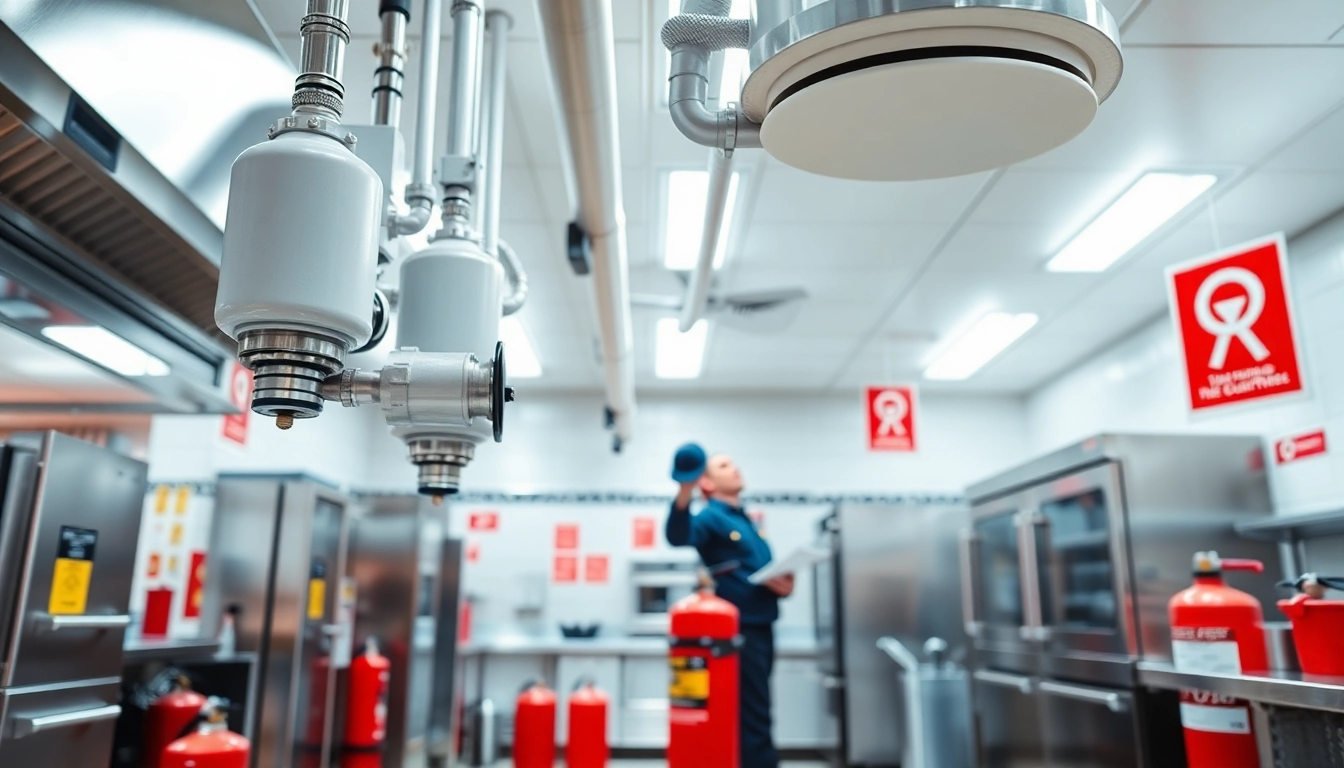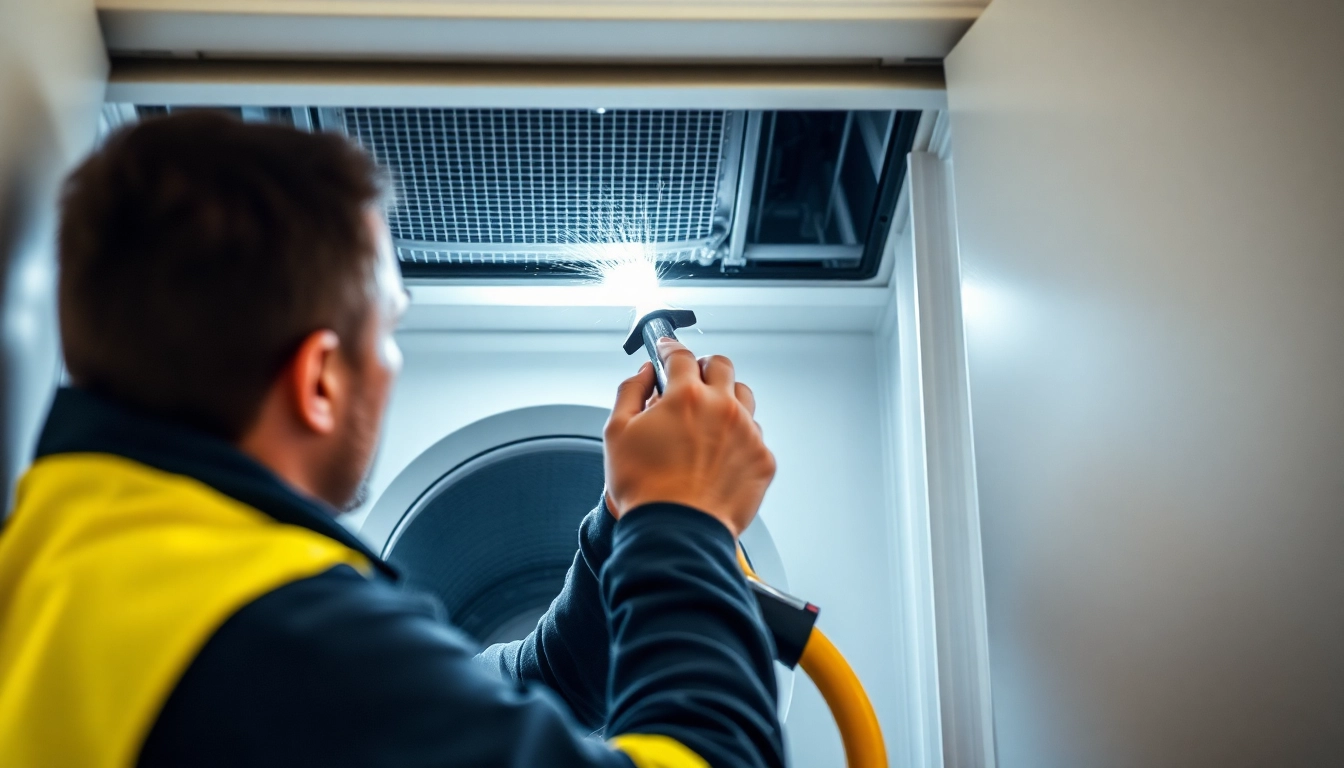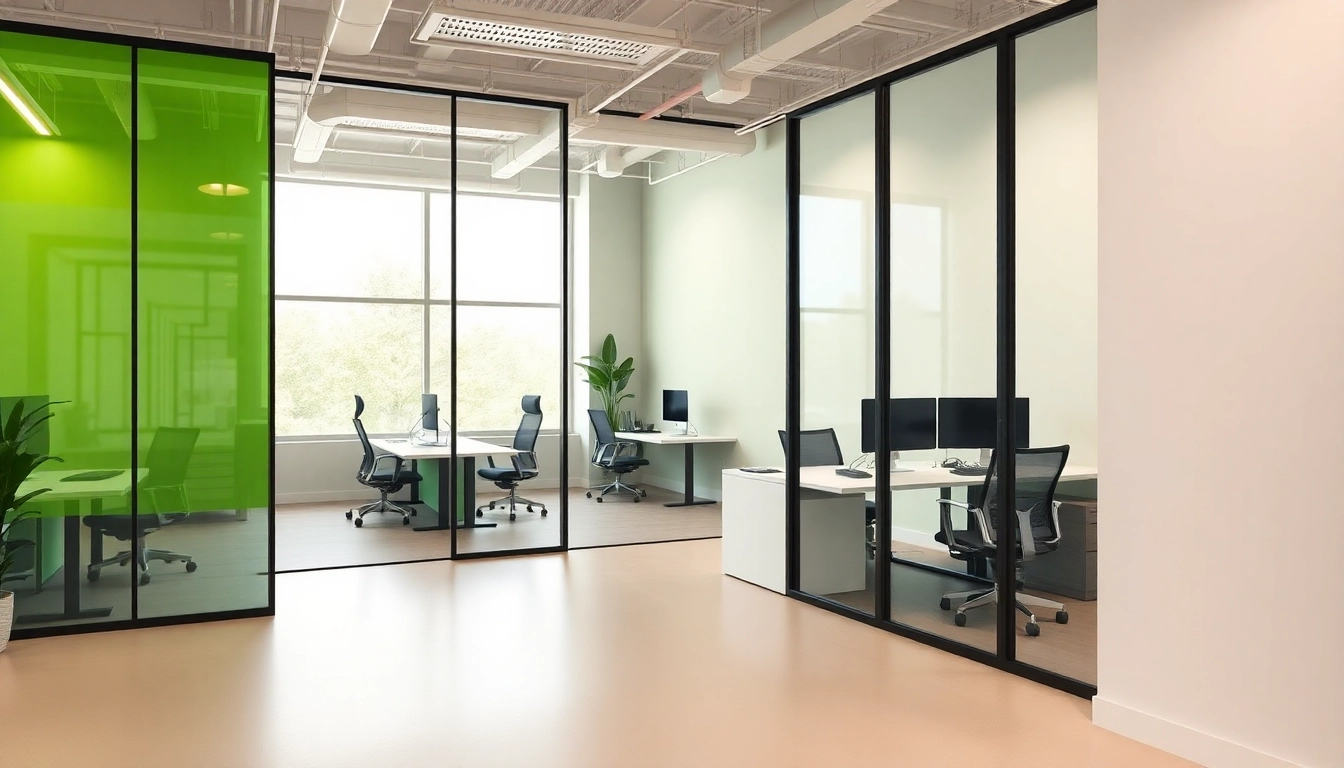Understanding the Importance of Fire Suppression Service
In any business, ensuring a safe environment for employees and customers is paramount. One critical aspect of creating that safety is having a reliable Fire Suppression service in place. This service not only protects property but also saves lives by minimizing the dangers associated with fire hazards. Understanding the importance of fire suppression services can be the difference between a minor incident and a catastrophic loss.
What Is Fire Suppression Service?
Fire suppression service refers to a range of systems, technologies, and procedures designed to detect, control, and extinguish fire threats. These systems are tailored to different environments, including commercial kitchens, manufacturing plants, warehouses, and office buildings. The hallmark of effective fire suppression systems lies in their ability to respond swiftly to fire outbreaks, thereby preventing significant damage and ensuring the safety of all building occupants.
Key Benefits of Fire Suppression Service
The benefits of a robust fire suppression service are extensive:
- Protection of Lives: The foremost benefit is saving lives. Fire suppression systems ensure that occupants can escape quickly in the event of a fire.
- Property Preservation: Quick suppression minimizes property loss, ensuring that businesses can maintain their assets and minimize operational disruption.
- Lower Insurance Premiums: Businesses with effective fire suppression systems often see reduced insurance premiums, as insurers recognize the reduced risk of losses.
- Compliance with Regulations: Many jurisdictions require fire suppression systems, and compliance can prevent legal issues and fines.
- Peace of Mind: Knowing that a fire suppression system is in place allows business owners and employees to focus on their tasks without fear of potential disasters.
Common Misconceptions About Fire Suppression
Despite their importance, several misconceptions surround fire suppression services:
- Only Necessary for Large Buildings: Many believe that only big structures need fire suppression systems, but any commercial space can benefit, especially kitchens and small offices.
- Expensive to Install and Maintain: While upfront costs can be significant, the long-term savings and benefits often outweigh these costs.
- Simplistic Systems are Sufficient: Some might think that simple sprinklers are adequate; however, tailored fire suppression solutions are critical for specific industries.
- They are No Longer Needed Once Installed: Regular maintenance is essential to ensure systems function correctly and effectively.
Types of Fire Suppression Systems
Understanding the various types of fire suppression systems is essential when determining the best solution for a business. Here’s a detailed look at the most common fire suppression systems:
Water-Based Fire Suppression Service
Water-based systems are among the most traditional and widely used methods of fire suppression. They include:
- Sprinkler Systems: These systems automatically distribute water to suppress the fire. They are categorized into various types, including wet, dry, and pre-action systems.
- Standpipe Systems: Designed for use by fire departments, standpipes deliver water through a network of pipes.
- Hose Reels: These are manually operated and are essential in smaller areas where quick access to water is necessary.
Water is effective at cooling flames and reducing the blazes’ intensity. However, it may not be ideal for all scenarios, particularly in places where water damage can lead to greater issues.
Foam-Based Fire Suppression Systems
Foam suppression systems utilize a mixture of water and foam concentrate to form a blanket over flames. This type is particularly useful for:
- Flammable Liquids: Foam systems are effective in extinguishing fires involving flammable liquids by suffocating the flames.
- Hazardous Environments: Industries that deal with chemicals or hazardous materials often require specialized foam systems to ensure safety.
The foam creates a barrier that separates the fuel from the fire, effectively starving the fire of oxygen.
Gas and Chemical Suppression Options
Gas suppression systems utilize inert gases, such as nitrogen, argon, or CO2, to extinguish fires without damaging sensitive equipment:
- Inert Gas Systems: These systems displace oxygen, thus suffocating the fire while being safe for the environment.
- Chemical Suppression: Often used in kitchens, these systems release chemicals such as potassium acetate to extinguish grease fires effectively.
Gas and chemical suppression systems are particularly useful in environments with valuable equipment, such as server rooms or laboratories, where water damage from sprinkler systems could be detrimental.
Choosing the Right Fire Suppression Service for Your Business
Selecting the correct fire suppression service is a critical decision for any business. Here are key considerations to guide that choice:
Assessing Your Specific Fire Hazard Risks
Understanding the specific fire risks associated with your operation is crucial. Perform a comprehensive fire hazard assessment that looks at:
- Type of materials and processes used in your business.
- The layout of the facility and potential escape routes.
- History of fire incidents in similar environments.
This assessment will help determine the most effective type of fire suppression system required for your business.
Factors to Consider When Selecting a Service
When choosing a fire suppression service, several factors should be taken into account:
- Customization: Ensure that the service is tailored to your business’s unique needs and risks.
- Expertise: Select a provider with experience in your industry and the specific fire hazards associated with it.
- Maintenance and Support: Evaluate the ongoing maintenance support they provide to ensure the system remains operational.
- Regulatory Compliance: Confirm that the selected service complies with local fire codes and regulations.
Frequently Asked Questions on Fire Suppression Service
Here are answers to some common questions regarding fire suppression services:
- How often should my fire suppression system be inspected? It is advisable to have inspections and maintenance conducted at least annually.
- What happens if my fire suppression system goes off unintentionally? This can be a costly event, but most systems can be reset, and an investigation should determine the cause.
- Are there specific guidelines for fire suppression in commercial kitchens? Yes, commercial kitchens require specific systems, such as wet chemical suppression, tailored for grease fires.
Installation and Maintenance Best Practices
Proper installation and maintenance of fire suppression systems are essential to ensure system efficacy. Here’s a detailed overview:
Steps to Installing Fire Suppression Systems
The installation process for fire suppression systems should follow these steps:
- Site Assessment: Conduct a detailed risk assessment of the premises.
- System Design: Plan the optimal system that meets all fire safety requirements and is tailored to specific risks.
- Professional Installation: Hire certified professionals to install the system to code and standards.
- Testing: After installation, thoroughly test the system to ensure full functionality.
Regular Maintenance and Inspections
Regular maintenance is vital for ensuring that fire suppression systems work effectively when needed. Establish a maintenance schedule that includes:
- Monthly inspections to check system readiness.
- Annual servicing by a certified technician.
- Regular training for staff on how to operate the system.
Common Issues and Solutions in Fire Suppression Systems
Like any system, fire suppression systems can encounter problems. Here are common issues and their solutions:
- System Activation Failure: This could be due to debris clogging nozzles or sensors. Regular cleaning and inspection can mitigate this.
- False Alarms: Often caused by dust and debris in sensor responsive areas. Routine maintenance can help reduce false triggers.
- Outdated Systems: Technology evolves, and older systems may not meet current regulations. Upgrading systems when obsolete is crucial.
Compliance and Regulations for Fire Suppression Service
Adhering to local regulations regarding fire suppression services is essential for legal compliance, safety, and insurance purposes.
Understanding Local Fire Safety Codes
Fire safety codes vary by location and industry. It’s critical to familiarize yourself with local regulations, which may include:
- Specific requirements for the type of fire suppression systems allowed in certain environments.
- Periodic inspection mandates and documentation requirements.
- Required training for employees on fire safety and evacuation procedures.
Importance of Compliance for Business Safety
Compliance with fire safety regulations is not just a legal requirement but also a matter of business safety. It helps to:
- Protect employees and customers.
- Avoid costly fines and legal repercussions.
- Enhance the company’s reputation as a safe place to work and conduct business.
Penalties for Non-Compliance with Fire Suppression Regulations
Failing to comply with fire suppression regulations can result in severe consequences, including:
- Fines from regulatory bodies for each infraction.
- Increased insurance premiums or denial of coverage.
- Liability in the event of a fire incident that causes harm or property damage.
Taking the time to understand and implement the necessary measures can protect your business and foster a culture of safety.



